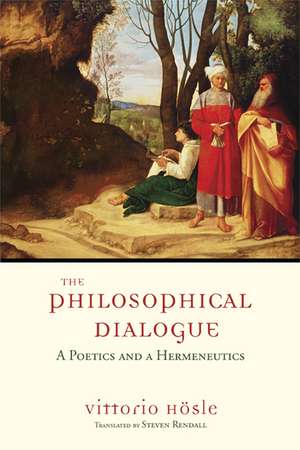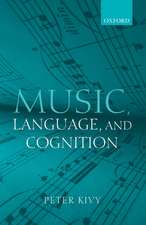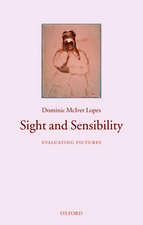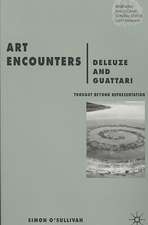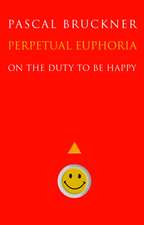The Philosophical Dialogue – A Poetics and a Hermeneutics
Autor Vittorio Hösle, Steven Rendallen Limba Engleză Paperback – 14 ian 2013
| Toate formatele și edițiile | Preț | Express |
|---|---|---|
| Paperback (1) | 263.24 lei 43-57 zile | |
| MR – University of Notre Dame Press – 14 ian 2013 | 263.24 lei 43-57 zile | |
| Hardback (1) | 840.61 lei 43-57 zile | |
| MR – University of Notre Dame Press – 29 sep 2022 | 840.61 lei 43-57 zile |
Preț: 263.24 lei
Nou
Puncte Express: 395
Preț estimativ în valută:
50.39€ • 54.75$ • 42.35£
50.39€ • 54.75$ • 42.35£
Carte tipărită la comandă
Livrare economică 21 aprilie-05 mai
Preluare comenzi: 021 569.72.76
Specificații
ISBN-13: 9780268030971
ISBN-10: 0268030979
Pagini: 520
Dimensiuni: 154 x 227 x 34 mm
Greutate: 0.73 kg
Ediția:1st Edition
Editura: MR – University of Notre Dame Press
ISBN-10: 0268030979
Pagini: 520
Dimensiuni: 154 x 227 x 34 mm
Greutate: 0.73 kg
Ediția:1st Edition
Editura: MR – University of Notre Dame Press
Recenzii
"With its exceptionally clear and powerful argumentation, the book might become the defining work for the study of dialogue. Paraphrasing Kant, one could say that in philosophy mere theory without a history is empty, while history without a theory is blind. Yet in his work Hösle achieves a unique synthesis of historical perceptivity and systematic rigor. This book will be read for many years to come." —Dmitri Nikulin, New School for Social Research
“The inventor of philosophy, Plato, wrote in dialogues, as did some of the best philosophers, Cicero, Augustine, Cusanus, Hume and even Heidegger. Yet until Vittorio Hösle no one had thought of devoting a major study to the genre of the philosophical dialogue. His groundbreaking and thorough inquiry inspires one to read more philosophical dialogues and view them in a new light. It is an outstanding piece of scholarship.” —Jean Grondin, Université de Montréal
"The Philosophical Dialogue: A Poetics and a Hermeneutics contains four veritable monographs on its four main authors, Plato, Cicero, Hume, and Diderot. The book is well-written and never becomes pedantic; it manifests philological enthusiasm and an intimate knowledge of the connections in the whole area dealt with by this book." —Reinhard Brandt, University of Marburg
"Convincingly translated into English by Steven Rendall, a richly stimulating and documented survey is now made widely accessible. . . . a suggestive and authoritative study. The reader is drawn into the potentialities of dialogue—which may, in turn, define reading itself." —Times Literary Supplement
“Hösle’s latest publication is highly recommended, especially for its superb research and intelligently written subject matter.”—Catholic Library World
“This book will enthrall any who have found the genre of philosophical and theological texts to be of interest and importance, and it will assist anyone wishing better to understand the pragmatics and deictic variables and import of different kinds of philosophical and theological dialogue.” —Modern Theology
Notă biografică
Vittorio Hösle is Paul G. Kimball Chair of Arts and Letters in the Department of German Languages and Literatures, concurrent professor of philosophy and political science, and fellow of the Nanovic Institute for European Studies and of the Kroc Institute for International Peace Studies at the University of Notre Dame. He is the director of the Notre Dame Institute for Advanced Study. He is the author or editor of many books, including Darwinism and Philosophy (coedited with Christian Illies, 2005) and Morals and Politics(2004), both published by the University of Notre Dame Press.
Descriere
No overall history of the philosophical dialogue has appeared since Rudolf Hirzel's two-volume study was published in 1895. In The Philosophical Dialogue: A Poetics and a Hermeneutics, Vittorio Hösle covers the development of the genre from its beginning with Plato to the late twentieth-century work of Iris Murdoch and Paul Feyerabend. Hösle presents a taxonomy and a doctrine of categories for the complex literary genre of the philosophical dialogue, focusing on the poetical laws that structure the genre, and develops hermeneutical rules for its correct interpretation.
Following an introduction that employs the categories of subjectivity and intersubjectivity to classify philosophy's modes of expression, Hösle's book is structured by the classical triad of the production, inner structure, and reception of the literary dialogue. To explain what is meant by "philosophical dialogue," Hösle first deals with the specific traits of philosophical dialogue in contrast to other literary forms of philosophy and its special status among them. Second, he distinguishes the philosophical dialogue as a literary genre from actual philosophical conversation, and as a philosophical literary genre from nonphilosophical literary dialogues. Finally, he takes up the connection between literary form and philosophical content in the philosophical dialogue. Numerous authors of dialogues are discussed, with a special focus on Plato, Cicero, Augustine, Hume, and Diderot.
Originally published in Germany as Der philosophische Dialog: Eine Poetik und Hermeneutik (2006), this book not only contributes to the philosophical discussion of dialogue but to a great extent defines it. This fine translation will prove useful to both philosophers and literary critics in the English-speaking world.
"With its exceptionally clear and powerful argumentation, the book might become the defining work for the study of dialogue. Paraphrasing Kant, one could say that in philosophy mere theory without a history is empty, while history without a theory is blind. Yet in his work Hösle achieves a unique synthesis of historical perceptivity and systematic rigor. This book will be read for many years to come." —Dmitri Nikulin, New School for Social Research
